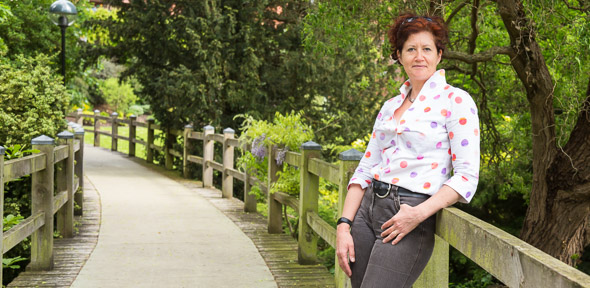
Professor Melinda Duer
My research career in the Department of Chemistry started in 1985 when I began my PhD degree. Then there were no women in positions more senior than my own. When I was appointed to a temporary lectureship in 1988, I was the first woman to be appointed to any kind of lectureship in the Department. These were, with hindsight, difficult times for women in academic roles.
My colleagues were usually pleasant enough in their everyday dealings, but it was clear that male scientists undervalued women in research and saw them as suitable for secretarial and support roles – many times, people came into my office asking for “Dr Duer,” assuming I was “his” secretary. My “wife” was invited every year to the Department Wives lunch. I did not feel part of the ‘team’ and nobody thought to remedy a culture which made young scientists (especially female) feel unvalued and limited in their career progress.
When I first started, I had a long running battle with technical support services (and their girlie calendars) to gain sufficient respect to warrant them doing anything for me. I did win, but it took a lot of planning, not to say some subterfuge. That was a generational culture, pervading most professions and society as a whole. The worst aspect was not being able to talk about it, for fear of being labelled “hysterical” and losing what felt like a hard-won respect. Change has been slow, but has had a transformative effect on the culture of our Department. This was long before our current technical staff joined the department, of course. Our current staff have a completely different mindset to "the way it was" and have always been helpful and supportive.
The Department’s work on the Athena SWAN objectives has had a huge impact for me personally and professionally, resulting in my recent promotion from Reader to Professor. Some colleagues have argued that the promotion was timely and well-deserved, but I am not sure I would have applied or been encouraged to apply had it not been for the outcomes for improving the institutional culture in the Department as part of the Athena SWAN effort.
First, the Department’s policy to have greater diversity of people on the various Departmental committees led to me chairing the (new) Faculty meetings and membership of the Department’s Senior Management Team (SMT). The Faculty meetings were devised by the Head of Department specifically to lead discussion on issues, ranging from general human resource matters, resource and research strategy, leadership and inclusivity. These roles gave me a higher profile and visibility in the Department, which was a significant factor in finding the confidence to apply for promotion.
Equally, when it came to the decision as to whether or not to apply for promotion, I received a lot of constructive advice, and when I made the decision to actually apply, a huge amount of genuine, well-judged support and guidance was offered. The fact that the encouragement, support and advice came from so many people reflecting the diversity of the Department made the whole experience all the more rewarding and I think my recent experience reflects just how far the atmosphere in the Department has changed over the past five years. It is no longer unseemly to offer support, and success is celebrated in an inclusive way that I am convinced means that we all benefit from our collective success stories.
And best of all, now we can talk about how culture and decisions impact on women, and we’re listened to.

